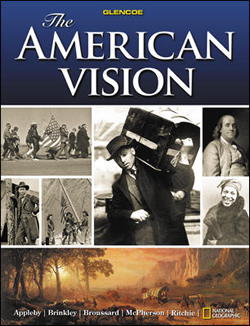
The American Vision © 2010Unit 9: A Changing Society, 1968-presentHistorical Thinking ActivitiesAssignment: Identifying Patterns in Foreign Policy Follow the steps below to locate primary and secondary sources describing American foreign policy in the Middle East. Select one of the following countries: Afghanistan, Iraq, Iran, or Israel and use the sources to prepare a timeline of major events in American foreign policy in that region of the Middle East since the 1970s. Assignment Task List Step 2: Review how to analyze primary sources. See "Analyzing Primary Sources" on page R19 of the Skills Handbook. Review how to sequence events. See "Sequencing Events" on page R17 of the Skills Handbook. Step 3: Read government documents related to the region of the Middle East you are studying. Make notes about major decisions and changes in American policy in the Middle East between 1970 and the present. PDF Sources: Library of Congress Country Studies: http://lcweb2.loc.gov/frd/cs/cshome.html State Department Documents on the Middle East peace process: Congressional Research Report: Palestinians and Middle East Peace: Congressional Research Report: Iran: U.S. Concerns and Policy Responses: Congressional Research Report: Afghanistan: Post-War Governance, Security, and U.S. Policy: President Bush's Address to Congress, September 20, 2001: President Bush's Address to the United Nations, September 12, 2002: Step 4: Analyze the notes you have taken. Arrange events in a chronological sequence. Discard those events that you think are less important or do not show the development of American policy. Write a brief summary statement about each event suitable for including on a timeline or in a chronology. Step 5: Create your timeline or chronology for the nation you have selected. Prepare a brief summary to accompany the timeline or chronology. The summary should explain whether American policy toward the nation you are examining has been consistent over time. If there is continuity in American policy, summarize the long term goals of the United States has pursued regarding that nation. If there have been major changes in American policy over time toward the nation, identify the major turning points. Step 6: Review your work against the checklist below. Revise your timeline and summary as needed.
|  | ||||||||||||||||||















